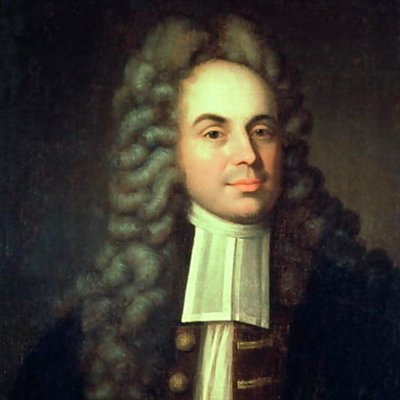LAD/Blog #2: Peter Zenger
LAD/Blog #2: Peter Zenger
#1: Who was Peter Zenger?
John Peter Zenger was the printer of the New-York Weekly Journal, the Province's first independent newspaper. He was one of just a few skilled printers of that area during his time. He printed some controversial material regarding Governor William Cosby in the 1730s, and, as a result, was charged with seditious libel.
#2:What was the controversy over his charges?
There was a lot of controversy over Zenger's charges. The most difficult part was that the truth of the statements that he printed didn't matter, and, he didn't even write those statements. The Cosby administration decided to take action against him because without him, they thought, the paper would not have been printed. However, he was not the person who crafted those statements; therefore it was controversial that he went to court. If the jury found Zenger responsible for the libelous material, Judges De Lancey and Philipse (allies of Cosby) would determine if the case was seditious libel. This made the outcome look very bleak for Zenger.
#3: What influence did his case have on American governmental traditions?
The Peter Zenger trial didn't establish any new principles regarding seditious libel or freedom of the press. However, it later impacted the protections enabled in the U.S. Constitution, the Bill of Rights, and the Sedition Act of 1798. Also, it helped reinstate the importance of a jury (later known as the judicial branch) to limit executive power (checks and balances). So although no immediate changes were made because of the results of his trial, the trial helped in giving more rights to the people in later governmental publications, and reminded everyone that no part of the government should have too much power.
#4: What is the lasting significance of his trial?
There is a large lasting significance of Peter Zenger's trial. First of all, in government, ideals derived from the trial are evident in the U.S. Constitution, the Bill of Rights, and the Sedition Act of 1798 (all focusing around seditious libel and freedom of the press). Also, it reinforced the importance of checks and balances in government, so there were no abuses of power. Another importance was Alexander Hamilton's speech at the end of the trial, saying that the cause of the case was really not even Peter Zenger himself, it was the cause of liberty. This caused him to be found not guilty, and really changed the way people thought about the subjects of seditious libel and freedom of the press. This was important for decades to come, and the freedom of the press became an amendment that is still incredibly influential today.

Peter Zenger

Donald Trump- concept of fake news (synthesis)

A Brief Narrative of the Case and Tryal of John Peter Zenger
#1: Who was Peter Zenger?
John Peter Zenger was the printer of the New-York Weekly Journal, the Province's first independent newspaper. He was one of just a few skilled printers of that area during his time. He printed some controversial material regarding Governor William Cosby in the 1730s, and, as a result, was charged with seditious libel.
#2:What was the controversy over his charges?
There was a lot of controversy over Zenger's charges. The most difficult part was that the truth of the statements that he printed didn't matter, and, he didn't even write those statements. The Cosby administration decided to take action against him because without him, they thought, the paper would not have been printed. However, he was not the person who crafted those statements; therefore it was controversial that he went to court. If the jury found Zenger responsible for the libelous material, Judges De Lancey and Philipse (allies of Cosby) would determine if the case was seditious libel. This made the outcome look very bleak for Zenger.
#3: What influence did his case have on American governmental traditions?
The Peter Zenger trial didn't establish any new principles regarding seditious libel or freedom of the press. However, it later impacted the protections enabled in the U.S. Constitution, the Bill of Rights, and the Sedition Act of 1798. Also, it helped reinstate the importance of a jury (later known as the judicial branch) to limit executive power (checks and balances). So although no immediate changes were made because of the results of his trial, the trial helped in giving more rights to the people in later governmental publications, and reminded everyone that no part of the government should have too much power.
#4: What is the lasting significance of his trial?
There is a large lasting significance of Peter Zenger's trial. First of all, in government, ideals derived from the trial are evident in the U.S. Constitution, the Bill of Rights, and the Sedition Act of 1798 (all focusing around seditious libel and freedom of the press). Also, it reinforced the importance of checks and balances in government, so there were no abuses of power. Another importance was Alexander Hamilton's speech at the end of the trial, saying that the cause of the case was really not even Peter Zenger himself, it was the cause of liberty. This caused him to be found not guilty, and really changed the way people thought about the subjects of seditious libel and freedom of the press. This was important for decades to come, and the freedom of the press became an amendment that is still incredibly influential today.

Peter Zenger
Donald Trump- concept of fake news (synthesis)

A Brief Narrative of the Case and Tryal of John Peter Zenger
Comments
Post a Comment